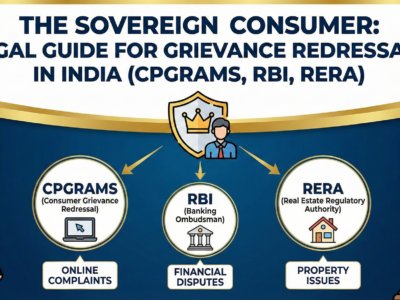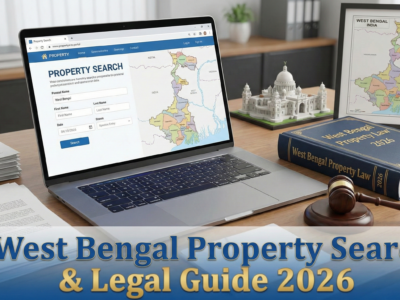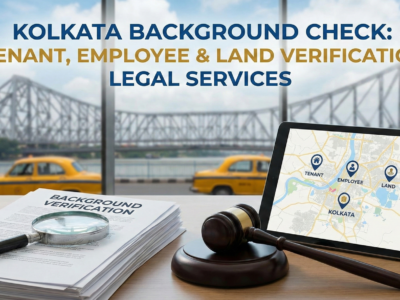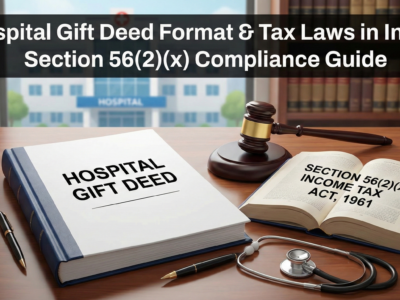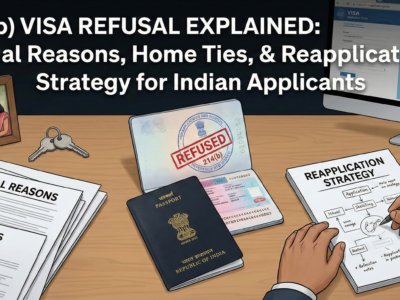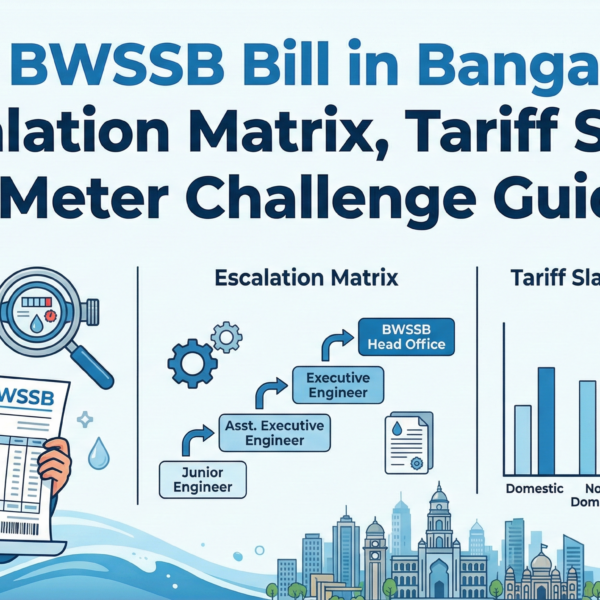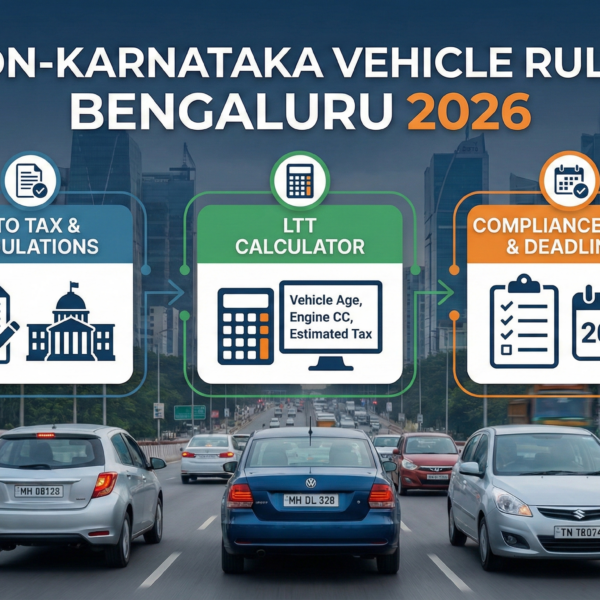Short‑term rentals have exploded across India, yet the rules that govern them remain scattered across municipal by‑laws, state tourism policies, and national tax codes. Whether you sublet your spare room on weekends or manage a portfolio of beach villas in Goa, one missed licence or TDS threshold can erase months of earnings—and invite hefty penalties. This interactive guide cuts through the legal fog with plain‑English explanations, state‑wise matrices, downloadable NOC templates, and step‑by‑step checklists. Spend less time decoding statutes and more time delivering the stays your guests rave about.
The Legal Labyrinth of Airbnb in India
A comprehensive guide to regulation, taxation, and compliance for hosts in the booming short-term rental market.
Executive Summary
Operating an Airbnb in India is a high-reward but high-complexity venture. There's no single national law, so hosts must navigate a maze of state, city, and housing society rules. This guide simplifies the three biggest challenges: State-Level Licensing (which often requires the owner to live on-site), a Dual Tax System (GST and Income Tax with mandatory TDS), and the critical need for Housing Society Approval (NOC). A compliance-first approach, including proper insurance, is the only way to operate legally and sustainably.
State-Level Homestay Policies: A Comparative Deep Dive
Because India has no central law for short-term rentals, each state makes its own rules. Most states shoehorn Airbnb into "Homestay" policies, which are often designed for live-in owners, not remote investors. This creates a patchwork of different requirements across the country.
| State | Registration | Owner Residency | Max Rooms | Governing Body |
|---|---|---|---|---|
| Goa | Yes, Mandatory | Yes (for "Homestay") | 6 rooms (12 beds) | Dept. of Tourism |
| Maharashtra | Yes, Multiple Licenses | Generally Implied | Varies by License | Directorate of Tourism; Municipal Corps |
| Delhi | Yes, Police License is Mandatory | Yes, Owner must reside | 5 rooms | Delhi Police; Dept. of Tourism |
| West Bengal | Yes, Mandatory | Yes, Owner & family must reside | 6 rooms | Dept. of Tourism |
| Karnataka | Yes, Mandatory | Yes, Owner or family must reside | 5 rooms | Karnataka Tourism Dept. |
| Kerala | Yes, Mandatory | Yes, Owner or family must reside | 6 rooms | Kerala Tourism Dept. |
| Rajasthan | Yes, under Guest House Scheme | Yes, for homestay category | 5 rooms | Dept. of Tourism |
| Himachal Pradesh | Yes, Mandatory | Yes, Owner & family must reside | 3 rooms | HP Tourism Dept. |
| Tamil Nadu | Yes, Mandatory | Yes, Owner must reside | 6 rooms | TTDC / Dept. of Tourism |
Key Legal Point: License vs. Tenancy
An Airbnb stay is legally considered a "license to occupy," not a long-term tenancy. This is good for hosts, as you are not bound by complex rent control or eviction laws, making it easier to remove a guest who violates rules. However, it also means guests do not have tenant rights. Your relationship is governed by your booking agreement and local lodging laws, not tenancy acts.
The Dual Taxation Burden: GST & Income Tax
Hosts face two separate tax obligations. Airbnb's role as a platform means tax compliance is not optional, as they automatically report and deduct taxes on your behalf.
Income Tax & TDS
Classify Your Income
Choose to file as "Income from House Property" (for passive letting with a 30% standard deduction) or "Business Income" (to deduct actual expenses like utilities, fees, and maintenance).
Mandatory TDS Deduction
By law, Airbnb MUST deduct 1% TDS (Tax Deducted at Source) on your gross payout. This is an advance tax payment made on your behalf.
Claim Your TDS Credit
Airbnb gives you a TDS certificate (Form 16A). Use this to claim credit for the tax already paid when you file your annual Income Tax Return.
Goods & Services Tax (GST)
The ₹20 Lakh Compliance Cliff
GST responsibility shifts dramatically based on your annual turnover (₹10 Lakh in some states).
Turnover < ₹20 Lakh
You are unregistered. Airbnb handles everything—it collects GST from the guest and pays it to the government for you.
Turnover > ₹20 Lakh
You hit the "compliance cliff." You MUST register for GST. Now, you are responsible for collecting GST, issuing tax invoices, and filing regular returns.
The Housing Society Conundrum
Society NOC: The Make-or-Break Hurdle
For most urban hosts, the society's No-Objection Certificate (NOC) is the most critical permission. Courts consistently uphold a society's right to ban "commercial activities" in residential flats via its by-laws, as established in landmark cases like *Kamaldeep Singh v. Shivam Satellite*.
Path to Approval
- Review society by-laws for any restrictions first.
- Engage the Managing Committee professionally.
- Proactively address their concerns about security, noise, and resource use.
- Secure a written NOC *before* you start hosting.
Common Society Objections
- Security risks from a constant flow of unverified guests.
- Nuisance from parties and general disturbance.
- Strain on common resources like lifts, water, and parking.
- Violation of "residential use only" clauses in their by-laws.
Critical Operational Compliance
Beyond licenses, daily operations carry legal weight. These are not best practices; they are mandatory duties with serious consequences.
Form C: The Non-Negotiable National Security Duty
Under the Registration of Foreigners Act, 1939, if you host a foreign national, you MUST submit their details to the Bureau of Immigration within 24 hours of their arrival. This is done by filing 'Form C' online.
- Action: You must first register your property on the Bureau of Immigration's portal (FRRO/FRO).
- Consequence: Failure is a serious offense under national security law and can lead to severe penalties, including potential criminal proceedings.
Local Police Verification
Rules vary by city. Some require hosts to get a police clearance for a license. Others require submitting details of all guests (domestic and foreign) to the local police station. Always check with your local police department for their specific requirements.
The Insurance Gap: Why AirCover Isn't Enough
Deconstructing AirCover for Hosts
Airbnb's protection is a good start, but relying on it solely leaves you dangerously exposed in the Indian legal and insurance market.
What AirCover Provides:
- Host Liability Insurance: Up to $1M USD if a guest gets injured. This is a real insurance policy.
- Host Damage Protection: Up to $3M USD for damage to your property. This is NOT insurance; it's a reimbursement program that Airbnb can approve or deny.
The Critical Gaps for Indian Hosts:
- Commercial Use Voids Your Policy: Your standard Indian home insurance is likely void if you're hosting commercially without telling the insurer.
- **Payouts Aren't Guaranteed:** Damage reimbursement is not a right; it depends on Airbnb's internal review and approval.
- Airbnb's Own Disclaimer: Airbnb itself says AirCover is not a substitute for personal insurance.
The Solution: Specialized Indian Landlord Insurance
You must get a "Landlord Insurance" policy from an Indian insurer. When buying it, you must explicitly declare that the property is used for short-term rentals. This policy should cover property damage, loss of rent, and public liability, giving you a legally sound safety net that AirCover cannot match.
Frequently Asked Questions (FAQs)
Can my Mumbai housing society legally stop me from listing on Airbnb?
Yes, absolutely. This is the most critical hurdle. If your society's by-laws prohibit commercial activity and they pass a resolution to ban short-term rentals, they have the legal right to stop you. The *Kamaldeep Singh* High Court case affirmed that society rules, passed by a majority, are legally binding on all members. Operating without a written No-Objection Certificate (NOC) is a major legal risk.
Which FRRO/C-Form must I file online when a foreign guest checks in?
You must file Form C. This is a mandatory national security requirement under the Registration of Foreigners Act, 1939. You need to first register your property on the official Bureau of Immigration portal (often called the FRRO or FRO portal). Then, for every foreign guest, you must submit their details via Form C online within 24 hours of their check-in. Failure to do so can result in serious penalties.
Section 194-O TDS: If I’m an NRI host but the listing is in India, will Airbnb still deduct 1%?
Most likely not under Section 194-O. That section specifically applies to payments made to *resident* Indian hosts. For Non-Resident Indians (NRIs), tax withholding is typically governed by Section 195 of the Income Tax Act and the terms of the Double Taxation Avoidance Agreement (DTAA) between India and your country of residence. The tax rate can be much higher (e.g., 30% plus surcharges), though you may be able to claim it back. This is a complex area; you must consult a Chartered Accountant specializing in NRI taxation.
Do I need a separate Delhi trade licence if I self-clean and hire no staff?
Yes. The requirement for a license in Delhi is based on the *activity* of providing lodging for a fee, not on whether you employ staff. The mandatory Delhi Police license for guest houses and lodging houses applies to the operation itself. Being a "DIY host" does not exempt you from this crucial licensing requirement.
Can small Airbnb hosts (< ₹20 lakh) opt for the GST composition scheme?
No. The GST composition scheme is not available for businesses that provide services through an e-commerce operator (ECO) like Airbnb. If your turnover is below the ₹20 lakh threshold, you don't need to do anything; Airbnb handles the GST. If you cross the threshold, you must register for the regular GST scheme, not the composition scheme.
Will the Pune Municipal Corporation (PMC) hike my property tax if I list on Airbnb?
It is very likely. Operating an Airbnb is considered a commercial activity. Municipal corporations across India have the right to reclassify properties from "residential" to "commercial" based on their usage. A commercial classification almost always results in a significantly higher property tax rate. You should assume this will happen and budget accordingly.
Can I declare Airbnb income under presumptive taxation (44AD/44ADA)?
This is a grey area and highly debatable. Section 44AD is for businesses, but income from letting property is often excluded. Section 44ADA is only for specified professions. While you can classify your income as "Business Income" (PGBP), its eligibility for the presumptive scheme is not clearly defined for platform-based short-term lets. You should not assume you are eligible. Consult a Chartered Accountant for advice specific to your situation.
Do I need an FSSAI licence just to serve complimentary breakfast?
Possibly. Even if it's complimentary, providing food as part of a commercial service can bring you under the purview of the Food Safety and Standards Authority of India (FSSAI). Depending on the scale of your operation, you may need a basic FSSAI registration. It's a low-cost compliance step that provides significant legal protection. To be certain, check the FSSAI portal or with a local food safety consultant.
Is a Delhi Shops & Establishments licence needed if I Airbnb my own flat only on weekends?
It's a grey area, but it's safer to get it. The license applies to commercial establishments. Even if you operate only on weekends, you are still engaging in a commercial activity for profit. Authorities often apply existing laws like the Shops & Establishments Act to regulate new business models. To be fully compliant and avoid any risk of penalties, obtaining the license is the recommended course of action.
Does a 2-bedroom apartment in Goa need a Fire-Safety NOC?
All establishments offering accommodation must comply with fire safety norms. While a formal NOC might depend on the building's height and size, you are legally required to have basic fire safety equipment like functional fire extinguishers. For a formal homestay registration with the Goa Tourism Dept., they will inspect for safety compliance. It is best to check the specific requirements with the Goa Directorate of Fire & Emergency Services for your property type.
Is police verification still mandatory in Karnataka for Indian Airbnb guests?
Police verification rules are subject to change and can vary by city. While the state's Homestay Policy outlines requirements for the host's verification, the rules for verifying each guest can be updated by local police commissioners. The safest approach is to always check with the local police station in your specific jurisdiction in Karnataka for the most current guest verification requirements.
Does hosting my inherited house on Airbnb breach FEMA rules for NRIs?
Generally, no, but you must manage the funds correctly. The Foreign Exchange Management Act (FEMA) allows NRIs to own and inherit residential property in India and to earn rental income from it. The key is that this income must be deposited into an NRO (Non-Resident Ordinary) account. Repatriating this money abroad has specific limits and tax implications. The act of renting itself isn't a violation, but mishandling the funds can be. Consult a CA specializing in FEMA for proper guidance.
The Host's Compliance Funnel
Follow this due diligence checklist in order. A "no" at any stage can make your Airbnb unviable.
1. The Society (Hyper-Local)
Secure a written No-Objection Certificate (NOC). This is non-negotiable.
2. The City (Municipal)
Check zoning laws and get required trade/lodging/police licenses.
3. The State (Provincial)
Register under the state's Homestay/B&B policy if required.
4. The Country (National)
Manage TDS/GST and register for Form C (foreign guests).
5. The Finances (Insurance)
Get specialized Indian Landlord Insurance. AirCover is not enough.
Market Outlook: The Path to Formalization
India's short-term rental market is growing rapidly, which will inevitably lead to more formalized regulations. The current "grey area" will shrink. Hosts who are already compliant will have a major advantage in the future.
Projected CAGR: 10.8% (2024-2034)

